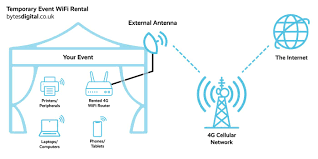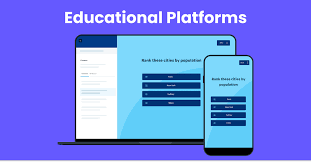Festival WiFi Solutions: Keeping Everyone Connected
As festivals continue to grow in popularity, the demand for reliable WiFi solutions has become more crucial than ever. From music festivals to food fairs, attendees expect to stay connected and share their experiences online in real-time.
Organizers understand the importance of providing seamless WiFi access throughout the festival grounds. A robust WiFi network not only enhances the attendee experience but also enables vendors to process transactions efficiently and sponsors to engage with a larger audience.
There are several key considerations when implementing WiFi solutions for festivals:
- Network Capacity: With thousands of attendees simultaneously connecting to the network, it’s essential to have a scalable infrastructure that can handle high traffic volumes without compromising speed or reliability.
- Coverage Area: Ensuring comprehensive coverage across all festival areas, including stages, vendor booths, and food courts, is crucial for providing a seamless connectivity experience for attendees.
- Security Measures: Implementing robust security protocols such as encryption and firewalls is essential to protect sensitive data and prevent unauthorized access to the network.
- User Experience: Providing a user-friendly login process and offering technical support services on-site can help enhance the overall experience for attendees who rely on the festival WiFi.
By partnering with experienced WiFi providers, festival organizers can deploy customized solutions tailored to their specific needs. These solutions may include temporary network installations, equipment rentals, and on-site technical support to ensure smooth operation throughout the event.
In conclusion, investing in reliable WiFi solutions is essential for modern festivals looking to meet the connectivity demands of tech-savvy attendees. By prioritizing network capacity, coverage area, security measures, and user experience, organizers can create a connected environment that enhances overall festival enjoyment for everyone involved.
Essential Guide to Festival WiFi Solutions: Connectivity, Coverage, and Security FAQs
- What is festival WiFi?
- Why is WiFi important at festivals?
- How can festival organizers ensure reliable WiFi coverage?
- What factors affect the speed of festival WiFi?
- Is festival WiFi secure for attendees?
- Can multiple devices connect to festival WiFi?
- Are there data limits on festival WiFi usage?
- How do vendors benefit from having access to festival WiFi?
- What technical support options are available for attendees experiencing connectivity issues?
What is festival WiFi?
Festival WiFi refers to the wireless internet connectivity provided at festivals and events to allow attendees, vendors, and staff to access the internet on their devices. Festival WiFi solutions are designed to support a high volume of users in a specific area, such as festival grounds, stages, vendor booths, and food courts. This dedicated network infrastructure enables attendees to stay connected, share their experiences on social media, access event information, and interact with sponsors and vendors. Festival WiFi plays a crucial role in enhancing the overall attendee experience by providing seamless connectivity for all participants throughout the event.
Why is WiFi important at festivals?
WiFi is crucial at festivals for several reasons. Firstly, it allows attendees to stay connected with their friends and family, share their experiences on social media in real-time, and access event-related information such as schedules and maps. Additionally, WiFi enables vendors to process transactions efficiently, facilitates cashless payments, and provides opportunities for sponsors to engage with a wider audience through interactive promotions. Overall, reliable WiFi enhances the overall festival experience by keeping everyone connected and informed throughout the event.
How can festival organizers ensure reliable WiFi coverage?
To ensure reliable WiFi coverage at festivals, organizers can take several proactive steps. First and foremost, conducting a thorough site survey to assess the layout and potential obstacles that may affect signal strength is crucial. By strategically placing access points throughout the festival grounds and considering factors like interference from other electronic devices or physical barriers, organizers can optimize coverage. Additionally, investing in high-quality networking equipment and scalable infrastructure that can accommodate a large number of simultaneous connections is essential. Regular monitoring and maintenance of the WiFi network during the event can help identify and address any issues promptly, ensuring a seamless connectivity experience for attendees.
What factors affect the speed of festival WiFi?
Several factors can impact the speed of festival WiFi. The number of simultaneous users connecting to the network is a significant factor, as high traffic volumes can strain the bandwidth and slow down connection speeds. The quality and capacity of the network infrastructure, including routers, access points, and cabling, also play a crucial role in determining WiFi speed. Additionally, external interference from nearby electronic devices or physical obstacles such as buildings or trees can degrade signal strength and affect speed. Proper network configuration, regular maintenance, and strategic placement of equipment are essential to optimize WiFi speed at festivals and ensure a seamless connectivity experience for attendees.
Is festival WiFi secure for attendees?
Ensuring the security of festival WiFi for attendees is a top priority for organizers. By implementing robust security measures such as encryption, firewalls, and secure login processes, festival WiFi networks strive to protect sensitive data and prevent unauthorized access. While no network can be completely immune to potential risks, reputable WiFi providers work diligently to create a secure environment that prioritizes attendee privacy and data protection. It is essential for festival attendees to also take precautions, such as avoiding public Wi-Fi networks for sensitive transactions and using virtual private networks (VPNs) when connecting to festival WiFi to enhance their own security measures.
Can multiple devices connect to festival WiFi?
Yes, festival WiFi solutions are designed to accommodate multiple devices connecting to the network simultaneously. By ensuring a robust network capacity and scalability, festival organizers can provide attendees with the ability to connect their smartphones, tablets, laptops, and other devices without experiencing significant slowdowns or interruptions. This capability allows festival-goers to stay connected, share their experiences on social media, and access event-related information conveniently throughout the festival grounds.
Are there data limits on festival WiFi usage?
When it comes to festival WiFi solutions, one common concern is whether there are data limits on usage. The answer to this question varies depending on the specific WiFi provider and package selected for the event. Some providers offer unlimited data plans for festival WiFi usage, allowing attendees to connect and use the internet without worrying about exceeding any limits. However, other providers may impose data caps or throttling measures to manage network traffic and ensure fair usage for all attendees. It is important for festival organizers to clarify any data limits or restrictions with their chosen WiFi provider in advance to set clear expectations for attendees and avoid any potential connectivity issues during the event.
How do vendors benefit from having access to festival WiFi?
Vendors benefit significantly from having access to festival WiFi by being able to enhance their operations and engage with customers more effectively. With reliable WiFi connectivity, vendors can process transactions quickly and efficiently using online payment systems, reducing wait times for customers and increasing sales opportunities. Additionally, access to WiFi enables vendors to showcase their products or services through interactive digital displays or promotional materials, attracting more attention from festival attendees. By leveraging festival WiFi, vendors can improve their overall visibility, customer engagement, and operational efficiency, leading to a more successful and profitable festival experience.
What technical support options are available for attendees experiencing connectivity issues?
When attendees experience connectivity issues at festivals, there are various technical support options available to assist them. Festival organizers often provide on-site help desks staffed with knowledgeable IT professionals who can troubleshoot and resolve connectivity issues in real-time. Additionally, some festivals offer dedicated hotlines or online chat support for attendees to report problems and receive immediate assistance. These technical support options aim to ensure that attendees can quickly get back online and enjoy a seamless WiFi experience throughout the event.


